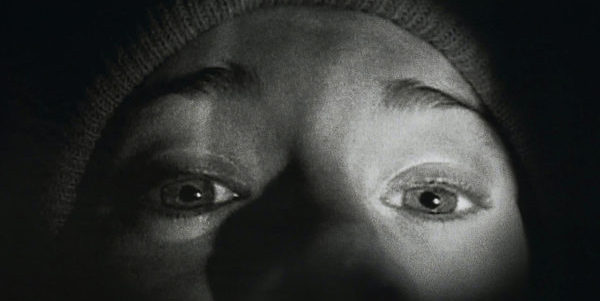Nineties psychological horror The Blair Witch Project wasn’t an instant hit. Though a triumph with critics, its box office success was slow, but it now stands as one of the most financially successful independent films of all time, and as a forefather of the found footage trend. Not only did The Blair Witch Project pave the way for found footage horrors like [Rec], V/H/S, and the Paranormal Activity series, sci-fis and fantasies like Cloverfield, Trollhunter and Chronicle also used the format.
With such trendsetting success comes the eventual deadbeat sequels that chip away the memory of their better predecessors. The Blair Witch Project spawned two sequels, Book of Shadows: Blair Witch 2, which this year’s effort, Blair Witch, completely ignores.
Of course money-motivated sequels are a cross genre convention: the Die Hard series, the Bridget Jones series, just about every Marvel film. But the monetisation of once unique and original horror films in particular seems inevitable in the modern horror genre, where a name seems worth more than a plot. So why is The Blair Witch Project a stand-out case? Why does it hurt so much more that The Blair Witch franchise descended into sub-par sequels?
A Trend-setting Horror
As a fairly inexperienced horror critic I only recently viewed the original Blair Witch Project. Its documentary style was grounded in realism, so much so that when it was first released viewers believed the mythology of the Blair Witch to be true. This modern classic was an escape from dodgy CGI, unidimensional characters and the recorded screams heard in your average mainstream horror.

But this year’s effort falls into the exact horror traps its predecessors avoided. The scares are there aplenty in this year’s sequel; screams, bloody injuries, claustrophobic tunnels, snapped backs, possessed friends, it’s never ending. But in doing this, we lose the grit and honesty of its original and get Hollywood editing.
Blair Witch attempts to stay true to its found footage history but it lacks originality with its forced performances and the high quality filming tech (Drones, GPS ear cameras, a DSLR) which reeks of professionality. It’s a shame that this modern-day sequel does so little to recreate the realism of The Blair Witch Project.
Why The Blair Witch Project is Different
The Blair Witch Franchise is not the first to be scuppered by a lukewarm sequel, plenty of horror series, including Scream, The Conjuring, Saw and Insidious, have dampened the spirits of their first instalments with shoddy sequels and spin-offs.
But instead of the likes of Neve Campbell and Vera Farmiga in front of the camera and Wes Craven and James Wan behind it, The Blair Witch Project and its $60,000 budget spawned its success from novice actors and word of mouth marketing. It’s these factors which make The Blair Witch Project an important bastion of not only independent filmmaking financial success but of incredible originality.
In researching more about the production of the film I found that the three actors adlibbed much of their dialogue and were given less and less food each day to raise tensions amongst the cast. The strained relationships seen on-camera bled through to real life as the actors were largely stranded by the production team and were given clues to their next filming locations in milk crates.
This kind of filmmaking environment lends itself to the suffocating tension in The Blair Witch Project. But it’s so completely lost in its sequels. Don’t get me wrong, this year’s Blair Witch is a solid horror, but with its writers favouring a group dynamic with plenty of scares, versus Lionsgate’s original plan to keep the cast small, Blair Witch deviates dramatically from its predecessor. So not only is not as good, it doesn’t keep in the same aesthetic or spirit as the more successful Blair Witch Project.
Carrying On the Story
It definitely hurts to see a modern masterpiece scuppered by its sequels, but it stings just that little more when it comes to the Blair Witch Project. This original horror is famed and treasured by filmmakers and film geeks and so to see it sequels so dramatically turn away from what made The Blair Witch Project so unique is a real shame.
Modernising the franchise is one thing, but this year’s Blair Witch differed so vastly in its aesthetic and creative decisions that each Blair Witch film barely resembles the next.
Do you agree that the Blair Witch franchise has lost the plot? Or do you think modernising the franchise has been a positive step? Comment below!
Does content like this matter to you?
Become a Member and support film journalism. Unlock access to all of Film Inquiry`s great articles. Join a community of like-minded readers who are passionate about cinema - get access to our private members Network, give back to independent filmmakers, and more.